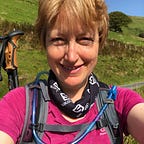Is sleep the real big shot tool for increasing productivity?
Have I missed something; am I late to the party?
Have we been looking in the wrong direction for the past few years? “To do” apps, Pomodoro technique, management training courses and time management courses in the office… Should employers instead be offering snooze pods and bonuses for proof of 7.5 hours sleep?
The CEO of Aetna, Mr Bertolini, certainly believes so with bonuses of £25 if employees can prove they have slept for over 7 hours a night for 20 nights in a row.
My interest in sleep has been piqued this week by finishing “Why we sleep” by Matthew Walker and I have to say I am converted to his viewpoint.
For years it’s been cool to not need to sleep. People boast about how little sleep they need. If you take a sickie on the excuse of lack of sleep the night before then you run the risk of being mocked. Prominent political leaders are well known for their need for little sleep. Sleep is for the feeble. Barack Obama is reported to have coped on 6 hours every night. Bill Clinton 5 to 6, Donald Trump 4 to 5 hours, and Margaret Thatcher only 4 hours every night. Theresa May is quoted as sleeping only 4 to 6 hours a night saying “There’s a lot of work to do’” I agree she has a rather a lot on but perhaps the country might benefit if she had a couple of weeks of decent 7 hour+ sleeps?
Mr Walker makes the point that several historic disasters could be attributed to lack of sleep; the Exxon Valdez oil spill and Chernobyl in particular.
The above link highlights these plus other major accidents that could be sleep related.
So, if sleep is so important to enable people to do their job properly and this fact has been publicised since at least 2013, along with evidence that driving whilst tired is more of an issue than drink driving, (it is estimated that 1 in 6 crashes is fatigue related) how come this is not being hugely promoted? In the case of driving, I’m guessing it’s because sleep deprivation is harder to prove than drink driving but as technology in cars is progressing this should be come easier. “Driver drowsiness detection” technology of various sorts already exists for higher spec’ed cars. This data could be saved to a “black box” meaning should there be a crash this data could be analysed.
With regard to productivity in the workplace, surely employers should be running sleep workshops, health tracker companies could be offering sleep rather than just step counting challenges, and insurance companies offering discounts on car insurance based on average hours slept per month?
All the productivity tools available to us will not be as effective as they could be if only we grasped the fact that sleep really is the starting point. Goal setting and planning is going to be far less effective if our minds are in a fog. Wouldn’t it be so much more productive to whizz through our tasks with crystal clear focus in half the time and use the remaining time for extra sleep for the following day?
